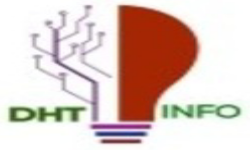Bengali FAQ schema generator tool for blog post
FAQ Schema Generator
Implementation Guide of FAQ schema code (Crucially Important)
After putting all of your FAQ questions and answers here, just before pasting it in your blog post or article, include this below code above it.
<script type="application/ld+json">
And put </script> just after it like the image below.
The Importance of FAQ Schema for SEO
In the ever-evolving world of Search Engine Optimization (SEO), staying ahead of the competition requires a solid understanding of technical strategies that improve visibility and user experience.
That's why we develop Bengali FAQ schema generator tool for nice blogging and FAQ. But it's not only for Bengali, It can perform in every language. Just put your question and answers by clicking 'Add FAQ' button and generate you schema by clicking on 'Generate Schema' button.
One such strategy is implementing FAQ (Frequently Asked Questions) Schema. This structured data markup can significantly enhance a website's performance in search engines while providing value to users.
In this basis, we will explore the importance of FAQ schema for SEO, how it works, and best practices for implementation.
What is FAQ Schema?
FAQ schema is a type of structured data markup defined by Schema.org. It allows website owners to provide information about frequently asked questions and their corresponding answers in a way that search engines can understand.
When implemented correctly, this schema can display the questions and answers directly in the search engine results pages (SERPs), enhancing visibility and interactivity.
For example, when users search for a query related to your content, Google may show an expandable list of FAQs directly below your webpage link. This not only improves the click-through rate (CTR) but also makes your content more engaging and accessible.
Benefits of FAQ Schema for SEO
1. Enhanced Visibility in SERPs
FAQ schema allows your content to stand out in the search results by displaying additional information in the form of rich snippets. Rich snippets often capture the user’s attention due to their interactive and visually appealing format, increasing the likelihood of clicks.
2. Improved Click-Through Rate (CTR)
With FAQ schema, users can quickly see relevant information directly in the SERPs. This instant gratification often leads to a higher CTR, as users perceive your content as more informative and reliable.
3. Increased Real Estate in Search Results
FAQ snippets take up more space in the search results compared to regular listings. This pushes competitors' listings further down the page, giving your content a competitive edge.
4. Voice Search Optimization
FAQ schema plays a significant role in voice search optimization. With the rise of voice-activated devices, users often ask conversational questions.
FAQ schema helps search engines understand and retrieve specific answers to these questions, making your site more relevant for voice search queries.
5. Reduced Bounce Rates
By providing concise and accurate answers upfront, FAQ schema ensures that users who click on your link are genuinely interested in your content. This alignment of expectations often leads to lower bounce rates.
6. Support for E-A-T Principles
Google emphasizes E-A-T (Expertise, Authoritativeness, Trustworthiness) in ranking algorithms. FAQ schema can contribute to this by showcasing your expertise in addressing common queries in your niche.
How to Implement FAQ Schema
Step 1: Identify FAQs
Start by researching the most common questions your audience is asking. Use tools like Google Search Console, keyword research platforms, or customer feedback to compile a comprehensive list.
Step 2: Add FAQ Content to Your Webpage
Incorporate the questions and their answers into your webpage in a user-friendly manner. Ensure the answers are concise, accurate, and valuable to your audience.
Step 3: Generate FAQ Schema Markup
Use tools like Google's Structured Data Markup Helper or online schema generators to create the FAQ schema code. Alternatively, developers can manually write JSON-LD (JavaScript Object Notation for Linked Data) structured data.
Step 4: Test and Validate
Use Google’s Rich Results Test or Schema Markup Validator to ensure the schema is implemented correctly. Address any errors or warnings that appear during validation.
Step 5: Monitor Results
Track the impact of FAQ schema on your search performance using tools like Google Analytics and Google Search Console. Look for improvements in CTR, rankings, and user engagement metrics.
Best Practices for FAQ Schema
1. Avoid Duplicate Content
Ensure the questions and answers are unique and relevant to the page they are implemented on.
2. Be Honest
Do not use FAQ schema to include hidden or misleading content. Google’s guidelines explicitly discourage manipulative practices.
3. Focus on User Intent
Align your FAQs with the intent of your target audience. The content should address real user concerns and queries.
4. Keep Answers Concise
While detailed content is valuable, answers in the FAQ schema should be brief and to the point.
5. Stay Updated
Regularly review and update your FAQs to keep the content fresh and relevant.
Common Challenges and How to Overcome Them
1. Misalignment with User Intent
Solution: Conduct thorough keyword research and user feedback analysis to ensure the questions resonate with your audience.
2. Technical Errors in Schema Markup
Solution: Test your schema implementation rigorously before deploying it live.
3. Lack of Results
Solution: Combine FAQ schema with other SEO strategies, such as optimizing meta tags, improving site speed, and building high-quality backlinks.
Conclusion
FAQ schema is a powerful tool that combines technical SEO with enhanced user experience. By leveraging this structured data markup, you can improve your website’s visibility, drive more traffic, and establish authority in your niche.
While implementation requires effort and precision, the rewards in terms of improved search performance and user satisfaction make it an invaluable component of any SEO strategy.
Start optimizing with FAQ schema today to stay ahead in the competitive digital landscape.









